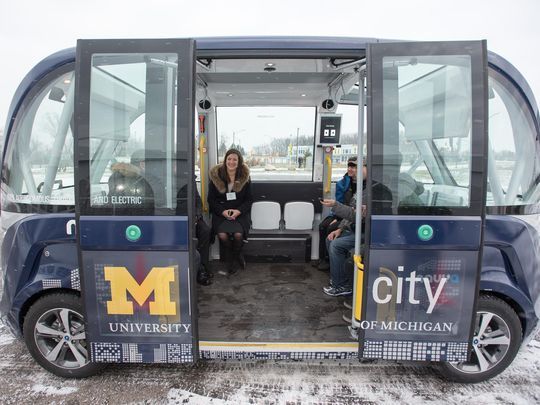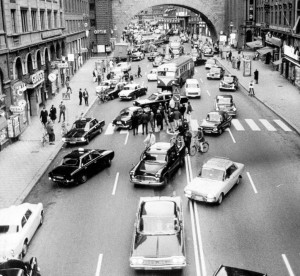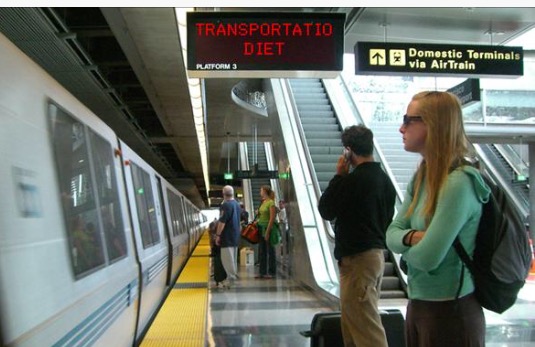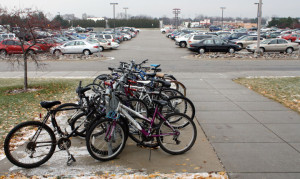
Boston City Hall was lit green on Thursday night.
President Trump’s decision last week to withdraw from the Paris Agreement was not a surprise. He talked about it many times during the 2016 election campaign.
But the outraged reaction to it from every corner of the world showed that the move was a shock.
Rather than join the global effort to address climate change, the U.S. now will be on the outside looking in. Before the U.S. withdrew, 196 countries agreed to abide by a deal in the making since 2009.
The implications couldn’t be greater for the future of transportation. Here’s why.
Unpredictability. Under the Paris Agreement, car makers, transit providers and commuters all knew what to expect: efforts to reduce global warming by 1.5 degrees centigrade. One of the simplest ways to do that is to raise fuel economy standards. By using less fuel, cars emit less carbon dioxide pollution.
However, any companies that think Trump’s decision lets them off the hook would be misinformed. On Thursday, 187 mayors from around the U.S. pledged to “adopt, honor and uphold” the Paris Agreement, and it’s likely that more will be joining the group in coming days
These mayors represent 32 million people in the country’s biggest cities, including New York, Los Angeles, Houston, Chicago, Austin, Des Moines, and many more. Marty Walsh, the mayor of Boston, responded by lighting Boston City Hall in Green (see the photo above).
“We will intensify efforts to meet each of our cities’ current climate goals, push for new action to meet the 1.5 degrees Celsius target, and work together to create a 21st century clean energy economy,” the mayors declared.
Presumably, this puts companies in an unpredictable position. Cars whose emissions comply with federal standards might not meet those embraced by the Climate Mayors. Some mayors may adopt stricter rules than others. An exception to the group: Detroit.
No one knows for sure what those mayors could enact, and uncertainty upsets shareholders, employees and consumers. Car companies and others could find themselves darting from one end of the country to the other in order to negotiate standards. Continue reading →
 Curbing Cars readers: we’d like your insight. We’d love to know how you’re getting around and how you plan to get around in the future.
Curbing Cars readers: we’d like your insight. We’d love to know how you’re getting around and how you plan to get around in the future.



 Summer is underway, and we’d like to hear from you. What is your transportation diet these days?
Summer is underway, and we’d like to hear from you. What is your transportation diet these days?

 Earlier this month, the Curbing Cars project returned to bring you original journalism about the future of transportation.
Earlier this month, the Curbing Cars project returned to bring you original journalism about the future of transportation.